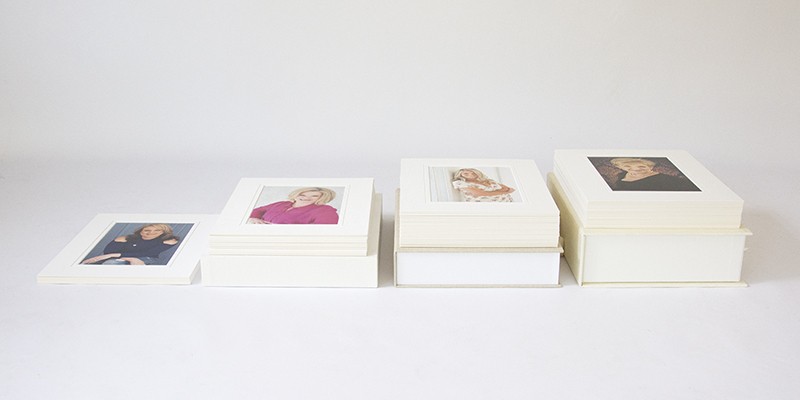Why Should I Print My Photos? A word on The Digital Dark Age
Want to make sure a photograph survives your lifetime? Print it out. That’s the warning Internet pioneer Vint Cerf gave at a talk recently, saying that vast amounts of digital information may soon be lost in a new digital 'dark age'.
He warned that a another ‘dark age’ may be looming on the horizon due to the fact that so much of our data is kept in digital formats.
More...
“If we don’t find a solution our 21st Century will be an information black hole,” Cerf warns. “We think about digitizing things because we think we will preserve them, but what we don’t understand is that unless we take other steps, those digital versions may not be any better, and may even be worse, than the artifacts that we digitized.”
What are 'The Dark Ages'?
Historically, the 'Dark Ages' refers to a period of time in Europe in which relatively few records survived, causing that section of history to be hidden from the view of modern historians.
Cerf warned specifically about the loss of precious personal photos that may not be readable in the future:
“We have various formats for digital photographs and movies and those formats need software to correctly render those objects. Sometimes the standards we use to produce those objects fade away and are replaced by other alternatives and then software that is supposed to render images can’t render older formats, so the images are no longer visible."
This is starting to happen to people who are saving a lot of their digital photographs because they are just files of bits. The file system doesn’t know how to interpret them. You need software to do that. Now you’ve lost the photograph in effect.
If there are pictures that you really really care about then creating a physical instance is probably a good idea. Print them out, literally.”
Backing up your photos on multiple drives and discs may seem like a good idea and that’s true – but only in the short term. All digital storage methods suffer from the same flaw in the long run: the gradual decay of data over many years — something known as data rot.
A longer term option may be to store your data in the cloud with giant Internet corporations (e.g. Google, Amazon, Microsoft), but this can be a pricey option, and there’s no absolute guarantee these companies will still be around in the coming decades.
As Cerf says, one of the best options you may have right now for ensuring the long term survival of important photos is to print them out physically (with materials designed for longevity) and to keep the prints in a safe place.
Our life, our memories, our most cherished family photographs increasingly exist as bits of information - on our hard drives or in "the cloud". But as technology moves on, as hardware and software become obsolete, they risk being lost in the wake of an accelerating digital revolution.
Another campaigner for the survival of our history is former president of the Royal Society for Chemistry, Professor David Garner, who said that wherever possible, scientific data should be printed out and kept in paper archives to avoid crucial research being lost to future generations.
Prof Garner said that information stored on computers risked becoming inaccessible because of out-dated formats and paper back-ups were vital to ensure the survival of knowledge.
He pointed to a project by the BBC in 1986 to create a computer-based, multimedia version of the Doomsday Book, to mark the 900th anniversary of the 1086 publication.
The information was stored on two virtually indestructible interactive video discs that by the 1990s could no longer be read by computers. The Domesday Project has become synonymous with the problems of digital preservation.
“It was interesting that the original Domesday Book was still available and yet the digital version could no longer be read,” said Prof Garner. “And technology is moving far more quickly than it was in the 1980s and 1990s so this kind of issue is going to occur more often.”
What is The Doomsday Book?

After the Norman invasion and conquest of England in 1066, the Domesday Book was commissioned in December 1085 by order of William The Conqueror.
William needed to raise taxes to pay for his army and so a survey was set in motion to assess the wealth and assets of his subjects throughout the land.
The book has remained easily available in the National Archives in Kew, London.
“Digital storage is great and has put knowledge in an instantly accessible form, but things really need to be backed up in paper formats as well. In my own lifetime I have experienced not being able to access information any longer because the formats are now out of date.” Prof. Garner
"Print has the advantage of being technology-independent and so is always going to provide an alternative, safe backup." Prof. Garner
Archiving Your Photos
Digital materials are especially vulnerable to loss and destruction because they are stored on fragile magnetic and optical media which can deteriorate and can easily be damaged by exposure to heat, humidity, and short circuits.
Unlike books, digital archives face the threat of continual technological change. Floppy discs have become obsolete, replaced with CDs, Mini-discs and MP3s. Software from companies like Microsoft and Apple undergoes such rapid upgrading that many files can no longer be opened in later formats. Thousands of software programs common in the early 1990s are now extinct and unavailable. So even if data is kept, it may not be readable my machines of the future.
While a book can be left on a shelf for hundreds of years with little damage, information can suffer ‘bit rot’ where it can no longer be accessed. And opening each file manually to save it in a readable form would never be possible.
See below for links to sites where you can print your photos.
References:
Google's Vint Cerf warns of 'digital Dark Age' By Pallab Ghosh, Science correspondent, BBC News, San Jose. http://www.bbc.com/news/science-environment-31450389
Print Your Photos or Risk Losing Them to the Digital Dark Age, Internet Pioneer Warns, Feb, 2015, Michael Zhang. https://petapixel.com/2015/02/17/print-your-photos-or-risk-losing-them-to-the-digital-dark-age-internet-pioneer-warns/
The Telegraph By Sarah Knapton, Science Editor, 11 Oct 2015 http://www.telegraph.co.uk/news/science/science-news/11922192/Vital-information-could-be-lost-in-digital-dark-age-warns-professor.html
Print Houses:
Foto Supplies Albury http://fotosupplies.com.au
Officeworks
http://www.officeworks.com.au/print/print-and-copy/digital-photos-and-photobooks

